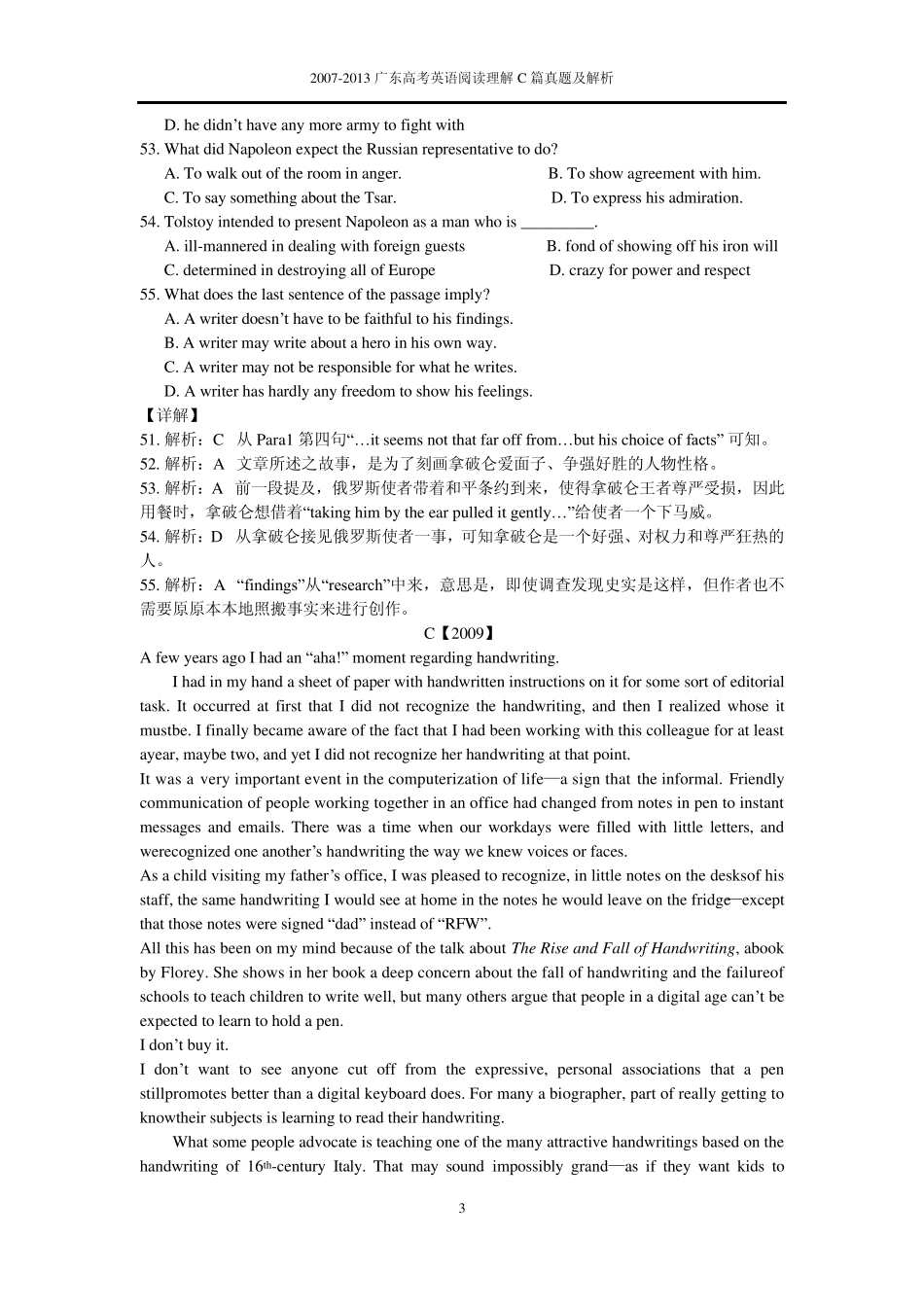2007-2013 广东高考英语阅读理解C 篇真题及解析 1 2007-2013 广东高考英语阅读理解C 篇真题及解析 C【2007】 Malaria, the world's most widespread parasitic(寄生虫引起的) disease, kills as many asthree million people every year—almost all of whom are under five, very poor, and African. Inmost years, more than five hundred million cases of illness result from the disease, although exactnumbers are difficult to assess because many people don't (or can't) seek care. It is not unusualfor a family earning less than two hundred dollars a year to spend a quarter of its income on malariatreatment, and what they often get no longer works. In countries like Tanzania, Mozambique, andthe Gambia, no family, village, hospital, or workplace can remain unaffected for long. Malaria starts suddenly, with violent chills, which are soon followed by an intense fever and,often, headaches. As the parasites multiply, they take over the entire body. Malaria parasites liveby eating the red blood cells they infect (感染). They can also attach themselves to blood vesselsin the brain. If it doesn’t kill you, malaria can happen again and again for years. The diseasepassed on to humans by female mosquitoes infected with one of four species ofparasite. Together, the mosquito and the parasite are the most deadly couple in the history of the earth—and one of the most successful. Malaria has five thousand genes, and its ability to change rapidly to defend itself and resist new drugs has made it nearly impossible to control. Studies show that mosquitoes are passing on the virus more frequently, and there are more outbreaks in cities with large populations. Some of the disease’s spread is due to global warming. For decades, the first-choice ...


